“The poem is an eyehole to a kind of truth or beauty that is finally unnameable.” –May Swenson
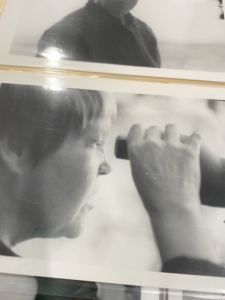 Last week I visited Washington University in St. Louis, MO, and, among other pleasurable tasks, I spent two mornings in the Special Collections section of the Olin Library, pawing through the May Swenson archives.
Last week I visited Washington University in St. Louis, MO, and, among other pleasurable tasks, I spent two mornings in the Special Collections section of the Olin Library, pawing through the May Swenson archives.
These are an example of her postcard journal—a stunning practice that I’d like to write more about, and adopt on my own 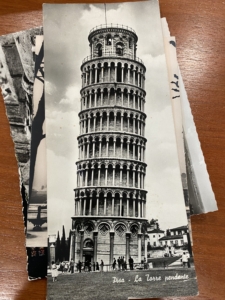
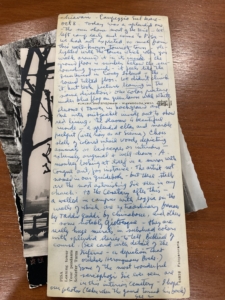 peregrinations.
peregrinations.
Many years ago—as a freshman in college—I encountered her poem, “The Centaur,” and though her work is varied and electric and vast, it’s as good a place to begin as any.
The Centaur
The summer that I was ten—
Can it be there was only one
summer that I was ten? It must
have been a long one then—
each day I’d go out to choose
a fresh horse from my stable
which was a willow grove
down by the old canal.
I’d go on my two bare feet.
But when, with my brother’s jack-knife,
I had cut me a long limber horse
with a good thick knob for a head,
and peeled him slick and clean
except a few leaves for the tail,
and cinched my brother’s belt
around his head for a rein,
I’d straddle and canter him fast
up the grass bank to the path,
trot along in the lovely dust
that talcumed over his hoofs,
hiding my toes, and turning
his feet to swift half-moons.
The willow knob with the strap
jouncing between my thighs
was the pommel and yet the poll
of my nickering pony’s head.
My head and my neck were mine,
yet they were shaped like a horse.
My hair flopped to the side
like the mane of a horse in the wind.
My forelock swung in my eyes,
my neck arched and I snorted.
I shied and skittered and reared,
stopped and raised my knees,
pawed at the ground and quivered.
My teeth bared as we wheeled
and swished through the dust again.
I was the horse and the rider,
and the leather I slapped to his rump
spanked my own behind.
Doubled, my two hoofs beat
a gallop along the bank,
the wind twanged in my mane,
my mouth squared to the bit.
And yet I sat on my steed
quiet, negligent riding,
my toes standing in the stirrups,
my thighs hugging his ribs.
At a walk we drew up to the porch.
I tethered him to a paling.
Dismounting, I smoothed my skirt
and entered the dusky hall.
My feet on the clean linoleum
left ghostly toes in the hall.
Where have you been? said my mother.
Been riding, I said from the sink,
and filled me a glass of water.
What’s that in your pocket? she said.
Just my knife. It weighted my pocket
and stretched my dress awry.
Go tie back your hair, said my mother,
and Why is your mouth all green?
Rob Roy, he pulled some clover
as we crossed the field, I told her.
—May Swenson
For this blogpost, I pulled the quote and the poem from my copy of Swenson’s Collected Poems (The Library of America , ed. Langdon Hammer, 2013). A quick Internet search for “May Swenson books” brought up numerous used copies of her many books. If you don’t know this poet at all, she’s especially well known for writing about the body—or “the animal body”—of which the human is one, and she is also known for her poems that play with shape and form, such as this:
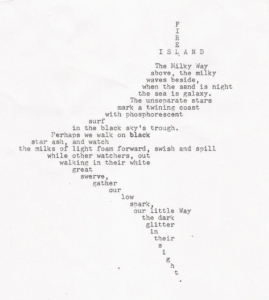
I hope to circle back and share more—or offer a class. We’ll see!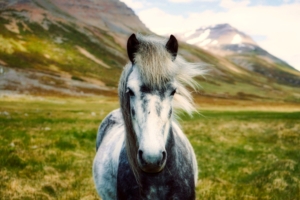
And — this is a p.s. — you can take a peek at the Charles Johnson or David Wagoner archives by visiting https://humanities.wustl.edu/features/joel-minor-charles-johnson-magic-his-hands.
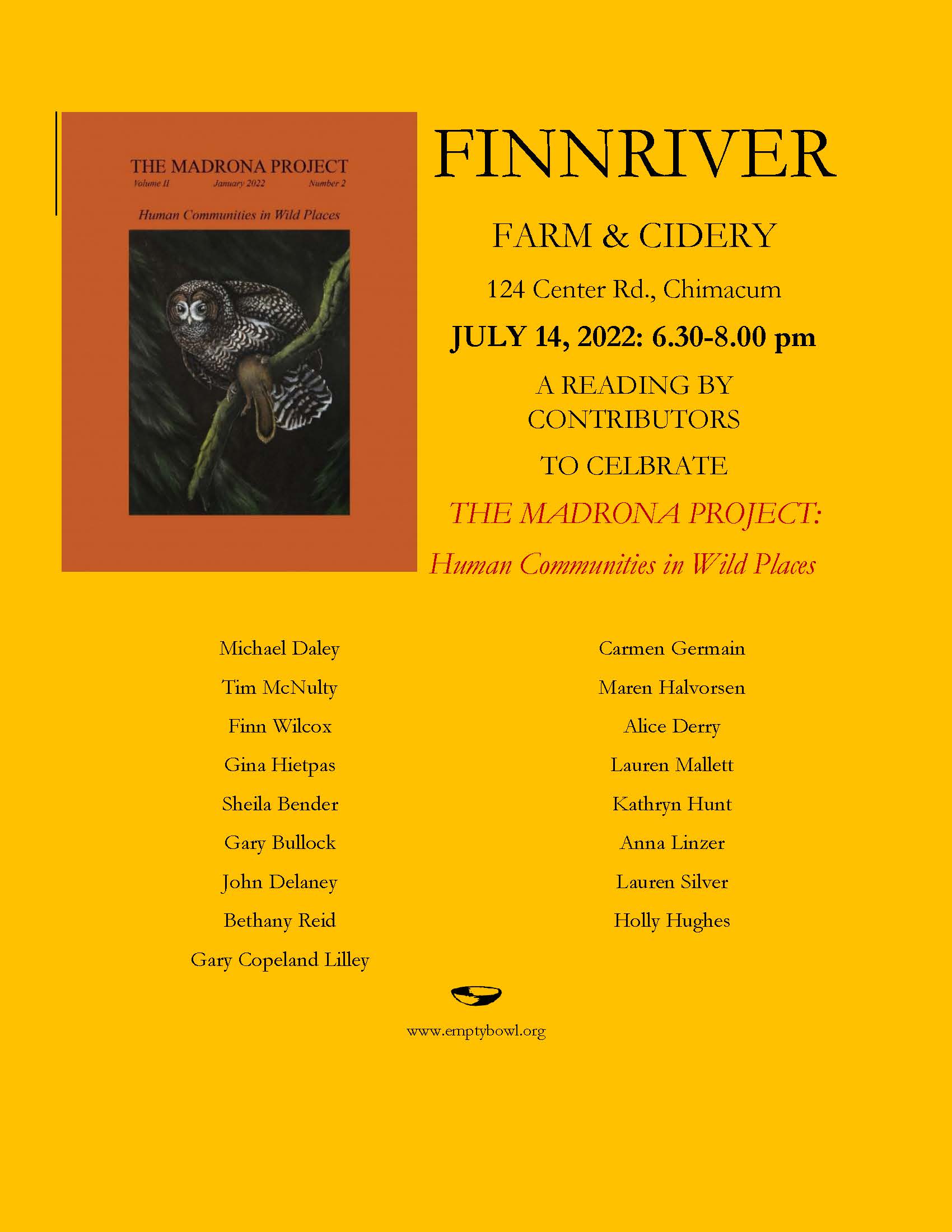

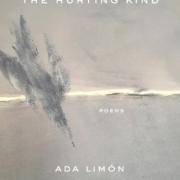

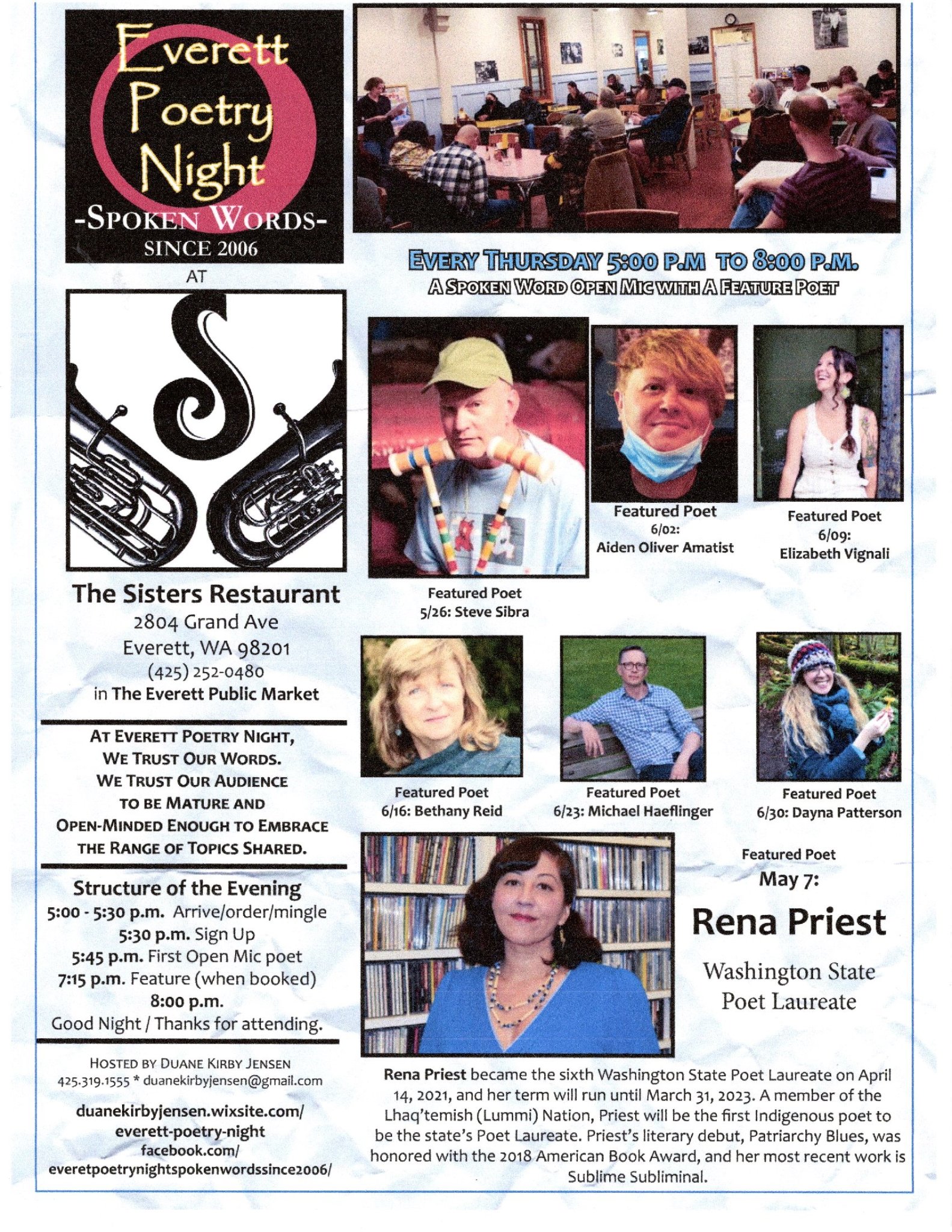 And, on July 14, I’m trekking to Chimacum to help celebrate the third edition of The Madrona Project. It’s an awesome line-up of poets, and I’m excited to be one of them.
And, on July 14, I’m trekking to Chimacum to help celebrate the third edition of The Madrona Project. It’s an awesome line-up of poets, and I’m excited to be one of them.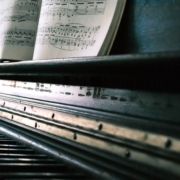
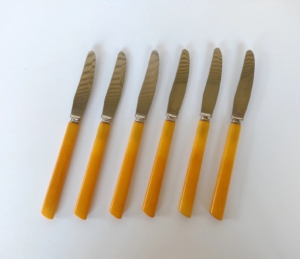
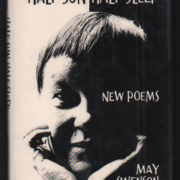
 Last week I visited Washington University in St. Louis, MO, and, among other pleasurable tasks, I spent two mornings in the Special Collections section of the Olin Library, pawing through the May Swenson archives.
Last week I visited Washington University in St. Louis, MO, and, among other pleasurable tasks, I spent two mornings in the Special Collections section of the Olin Library, pawing through the May Swenson archives.
 peregrinations.
peregrinations.
